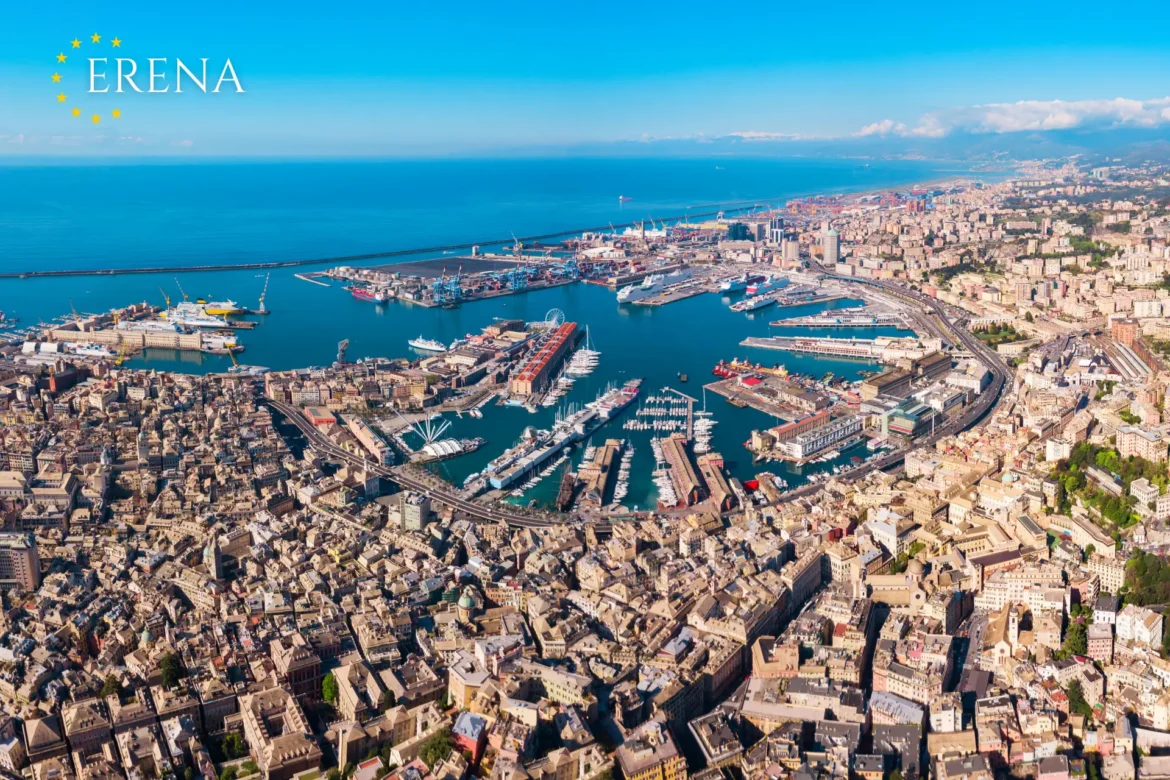Genoa, the capital of Liguria and one of Italy’s largest ports, is known for its rich history, stunning architecture, and breathtaking views of the Ligurian Sea. Despite its status as one of Europe’s key port cities, apartment prices in Genoa remain significantly lower than in other major Italian cities like Milan, Rome, or Florence. Why is this the case? Let’s explore the main factors influencing property prices in this picturesque city.
1. Demographic Decline and Aging Population
Genoa faces a serious demographic challenge. Many young people, especially skilled professionals, leave the city in search of better career opportunities in economically vibrant regions such as Lombardy, Piedmont, or even outside Italy. As a result, Genoa’s population is shrinking, directly impacting the demand for housing. The city’s aging population, which forms a significant portion of its residents, often remains in their existing homes, while younger families and new buyers increasingly avoid settling in Genoa.
2. Excess Housing Supply
Historically, Genoa was one of Italy’s largest and most populous cities, leading to a vast housing stock. However, as the population decreases, many apartments remain vacant. In certain areas, the supply far exceeds demand, driving property prices down. This is especially true for older buildings that do not meet modern housing standards.
3. Economic Stagnation
Genoa’s economy has traditionally been tied to port activities, shipbuilding, and logistics. However, with technological advancements and globalization, many of these industries have faced decline. Economic growth in the city remains limited, impacting the income levels of residents. Genoa’s purchasing power is lower than that of cities like Milan or Rome, which restricts the ability of locals to buy property. This creates downward pressure on prices, particularly for older or less attractive properties.
4. Condition of the Housing Stock
A large portion of Genoa’s housing consists of historic buildings. While these structures hold architectural value, many are in poor condition and require substantial investment for renovation and restoration. Such costs deter potential buyers, particularly those looking for move-in-ready homes. Additionally, renovating properties in historical districts often involves adhering to strict cultural heritage preservation rules, making the process even more complex and expensive.
5. Infrastructure Challenges
Despite its strategic location, Genoa’s transport infrastructure presents challenges. Narrow streets in the historic center and a lack of parking spaces create difficulties for drivers. The collapse of the Morandi Bridge in 2018 symbolized the city’s broader infrastructure issues, which have not been fully resolved. These factors reduce Genoa’s appeal as a place for permanent residence, especially for those accustomed to more convenient urban environments.
6. Decreased Interest from Foreign Buyers
Italy is a popular destination for international property buyers, but Genoa lags behind other regions such as Tuscany, Lombardy, or Veneto. This can be attributed to both economic and social factors. Tourists and foreign investors tend to favor smaller towns with better-developed infrastructure and more picturesque settings or major hubs offering greater opportunities for work and business.
7. Risk of Natural Disasters
Genoa’s location on hilly terrain makes it vulnerable to natural disasters. Floods and landslides are not uncommon in the region, particularly during heavy rainfall. This factor discourages demand for property, as potential buyers are aware of the additional costs associated with insurance and property protection.
8. Difficulties Modernizing Old Districts
Many areas in Genoa, especially the historic center, boast unique charm, but their architecture and infrastructure often fail to meet modern comfort standards. Narrow streets, a lack of elevators in older buildings, and limited modern amenities create challenges for residents. Consequently, properties in these areas lose their appeal to young families and working professionals.
9. Low Market Mobility
Due to the aging population and the city’s limited economic activity, Genoa’s property market is characterized by low mobility. Local residents are less inclined to buy or sell property, preferring to stay in their existing homes. This slows overall market dynamics and limits the influx of new buyers.
10. Impact of the COVID-19 Pandemic
The pandemic exacerbated the trend of declining demand for urban properties, particularly in cities with already weak economies. Many people began seeking homes in rural areas or suburbs where they could work remotely and enjoy more spacious living conditions. This trend is particularly relevant in Genoa, where historic apartments are often small and unsuitable for remote work setups.
Advantages and Future Prospects
Despite the challenges, Genoa offers several advantages that may attract specific categories of buyers:
1. Low property prices make the city accessible to investors and those seeking affordable housing in Italy.
2. Tourist appeal, with attractions like the Old Port, the Doge’s Palace, and the Genoa Aquarium, creates demand for short-term rentals, opening opportunities for investment.
3. Cultural heritage and the maritime atmosphere draw people who value history and unique architecture.
4. Modernization efforts: In recent years, Genoa’s authorities have been working to improve urban infrastructure, which could enhance the city’s appeal in the future.
The low apartment prices in Genoa are the result of a combination of demographic, economic, and infrastructural factors. However, for buyers and investors willing to consider these challenges, the city offers an opportunity to acquire affordable properties in a location rich in history and charm. With its long-term potential for growth, Genoa remains an intriguing option for those looking to invest in Italian real estate.
Genoa: Reasons for Low Apartment Prices in Italy’s Major Port City
685

